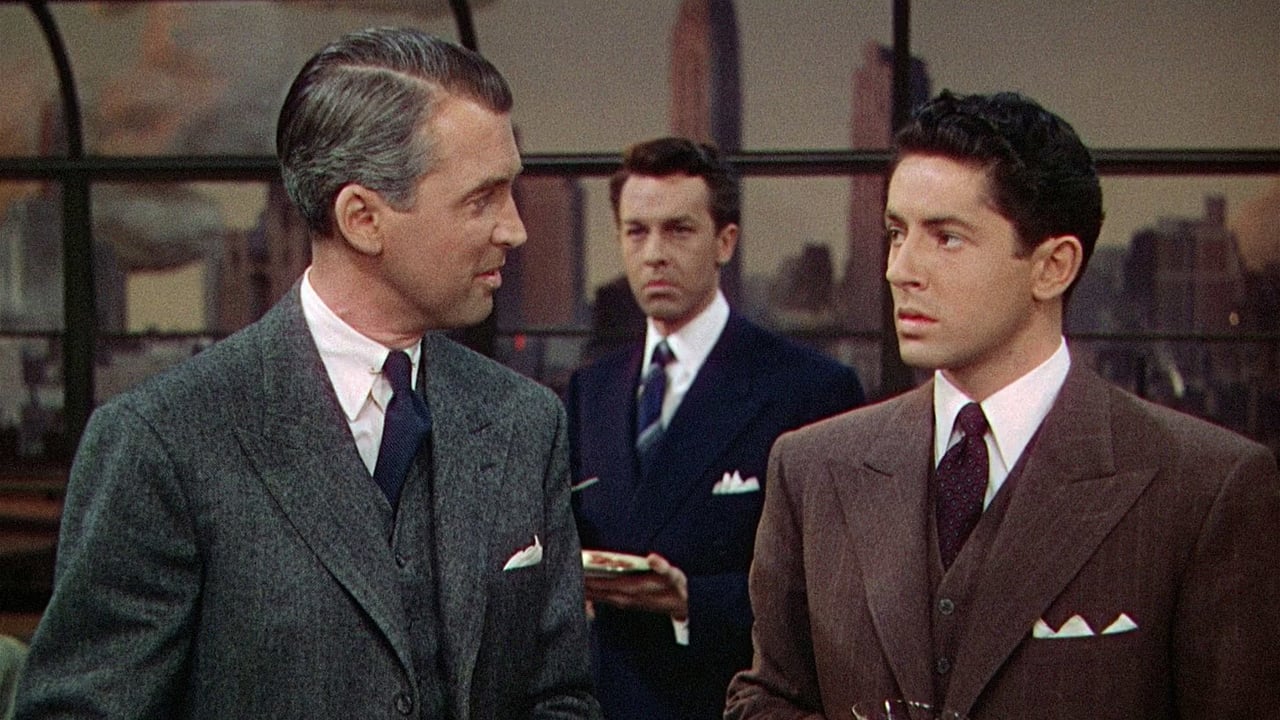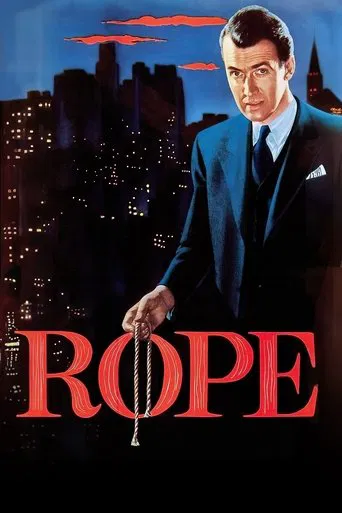Interesteg
What makes it different from others?
AboveDeepBuggy
Some things I liked some I did not.
Sameer Callahan
It really made me laugh, but for some moments I was tearing up because I could relate so much.
Allison Davies
The film never slows down or bores, plunging from one harrowing sequence to the next.
Osmosis Iron
Hitchcock's adaptation of a play that uses the one location "restriction" to it's advantage and uses extremely long takes to further blur the line between film and live theater! Stewart is the only big name in the cast, but it's a solid performance all around.
Brian_Cote-1
This little masterpiece puts chills down my spine a corrupt Brandon a perfectionist with a sick sense of humor that seems to want to get caught because he stuffed his friend into a chest and then invites over that mans whole family and friends in this unnerving little flick but his partner in crime gets jittery to the whole event and these little rascals reap what they sow through careful collective trail finding through one of the more keen guests its a real ride of tension and hate for this sick rich slob of a man that just has to ruin anything good of wanting food or wine to his uncouth dinner party. A must watch and an Alfred Hitchcock masterpiece enjoy ROPE~! 9 out of 10 forks the beast say here Yes oh yes THE BEAST APPROVES!
alexanderdavies-99382
Reviews regarding Alfred Hitchcock's masterpiece of "Rope," tended to be mixed when the film came out on release in 1948. Critics complained that "Rope" was in rather poor taste due to the subject matter. These days, the film is rightly regarded as one of Hitchcock's more original. It is a film that deals with the act of committing a murder for its own sake and how the people responsible decide who should live and who shouldn't. The people in question - including the victim - are three students who all know each other. The two killers are a gay couple who plot to kill their fellow student, on account of their supposed superiority over him. They commit their heinous act with no conscience and with no guilt. The plot concerns the attempts of the killers (John Dall and Farley Granger) to elude capture and to avoid any kind of suspicion falling upon them. After hiding the body in their apartment - where the killing takes place - they hold a dinner party for a few friends and acquaintances. Out of the two, Dall is the more conceited and arrogant. He puts on airs of his feeling superior and causing an atmosphere of tension with the girlfriend of the victim during the party. Granger is a lot more nervous and distracted by what has just occurred. You feel he will be the one who will give the game away. Hitchcock is carefully and methodically plotting the downfall of the killers from the film's opening scene. It is the appearance of James Stewart who plays the lecturer to the killers and the victim, that the film begins to change. From his first appearance, Stewart suspects that not all is what it appears to be. He senses bad vibes the moment he sees the two murderers. He begins to probe them in a subtle manner. The subject of homicide is brought into the discussion, purely on a theoretical basis or so it would appear. With such a conversation, Farley Granger's unease becomes more apparent and John Dall maintains his pomposity for the time being. The suspense builds to breaking point after nearly all the guests have left the apartment. James Stewart returns on the pretense of having left his hat behind. Now it is just the three actors for about the last 10 minutes or so and it is highly memorable. At this stage, both killers are at a low ebb, resistance wise. John Dall finally concedes defeat. Being callous right to the end, he expresses his lack of humanity by saying to James Stewart as he points to the hiding place: "Alright, I hope you like what you see." The camera cuts to a close up of the shock and disgust that Stewart feels at the gruesome discovery. The students try to appeal to their lecturer by trying to justify what they have done but it is all in vain. Stewart delivers some excellent dialogue when he denounces the actions of the killers, by explaining that the victim was a decent, sincere, gentle and civilised human being. It is an intense conclusion to a great film. It was hinted quite strongly in an early draft of the script, that the James Stewart character was sexually attracted to the murder victim and that his feelings were not reciprocated in the slightest. If any of that is true, I can't imagine James Stewart agreeing to be in the film as his kind of Republican politics would prevent him from being cast. As such, I believe the script was revised to eliminate any and all homosexual references to Stewart's character. Some critics felt that James Mason might have been a better choice for the pivotal role of the lecturer. I'm not saying Mason wouldn't have been good but I thought James Stewart did a good job. John Dall and Farley Granger did well as the two murderers and Cedric Hardwicke was effective as the victim's father. Hitchcock shot "Rope" in long, single takes and parts of the set were on wheels so as to make the photography more expressive. I feel all this adds to the film's value as a masterclass in filmmaking. I rate "Rope" as being one of Hitchcock's finest.
fouregycats
This famous Hitchcock film is known for its setting - the entire thing takes place in a flat shared by the two murderers and is a one-act play inspired by the Leopold & Loeb 1924 murder case.Two young men invite an acquaintance, a young man named David, to their apartment and strangle him to death. They place his body inside a wooden chest and in a macabre act of bravado and demonstration of their "superiority," they throw a party and set up a buffet from the top of the chest.The dialogue sparkles as the guests mingle, but a shadow looms over the festivities when one guest, David, fails to arrive. Enter Rupert (the always awesome James Stewart), the young men's former mentor, who soon begins to pick up on the tension between the two, especially Phillip (Farley Granger), who is the most guilty-looking character ever on film. The other young man, Brandon (John Dall)), is an oily, arrogant elitist who engages Rupert and the other guests in a discussion about killing off "inferiors" for the good of society. Rupert joins in, obviously being facetious, and it is equally obvious that Brandon is not. Panicky, Phillip drinks too much and later in the film, Granger does a bang-up job portraying the young killer melting down in an agony of fear and guilt.The art of Hitchcock is in the unequalled brilliance with which dialogue and timing are used to build suspense, draw in the viewer, and bring the story to a dramatic conclusion. Whatever you do, don't spoil the effect of this film by reading spoilers!!! Enjoy the ride, relish the sparkling, witty dialogue, and notice that even the camera work in this film is something marvelous. Watch this film. There isn't a dull moment in it, guaranteed. And believe it when people say with regret that they just don't make films like this anymore.

